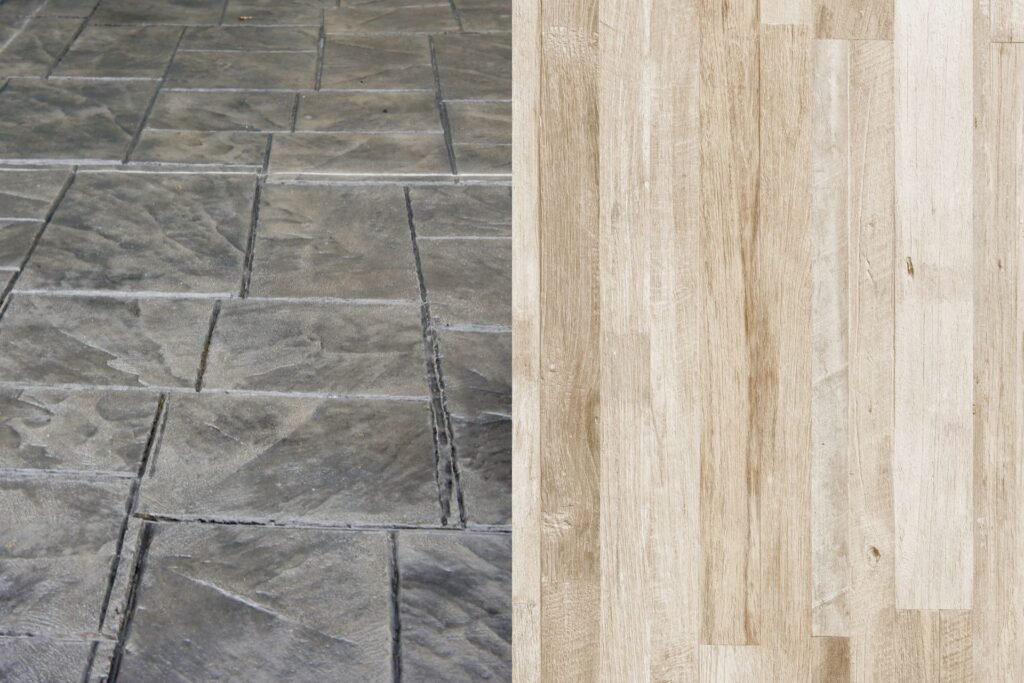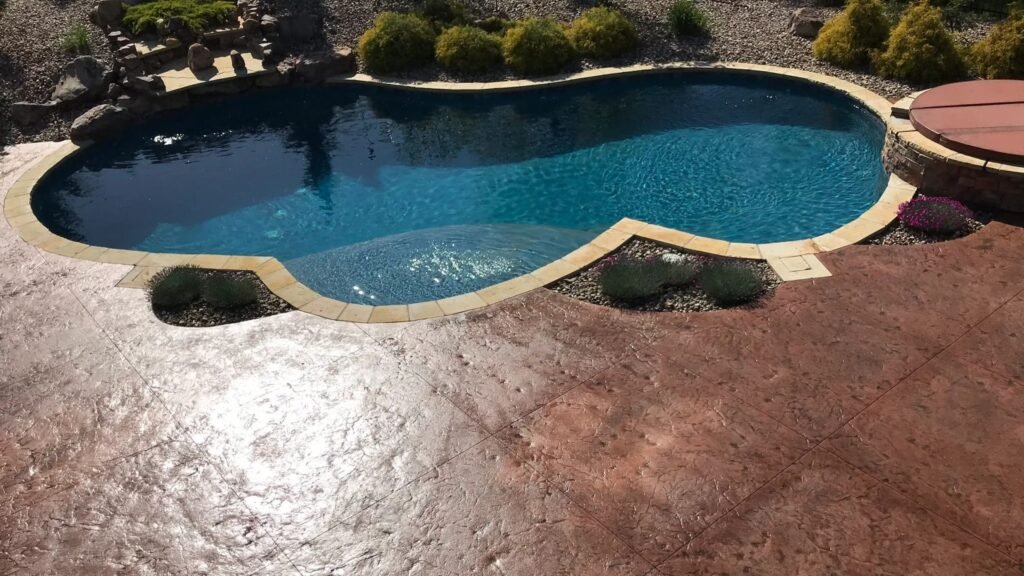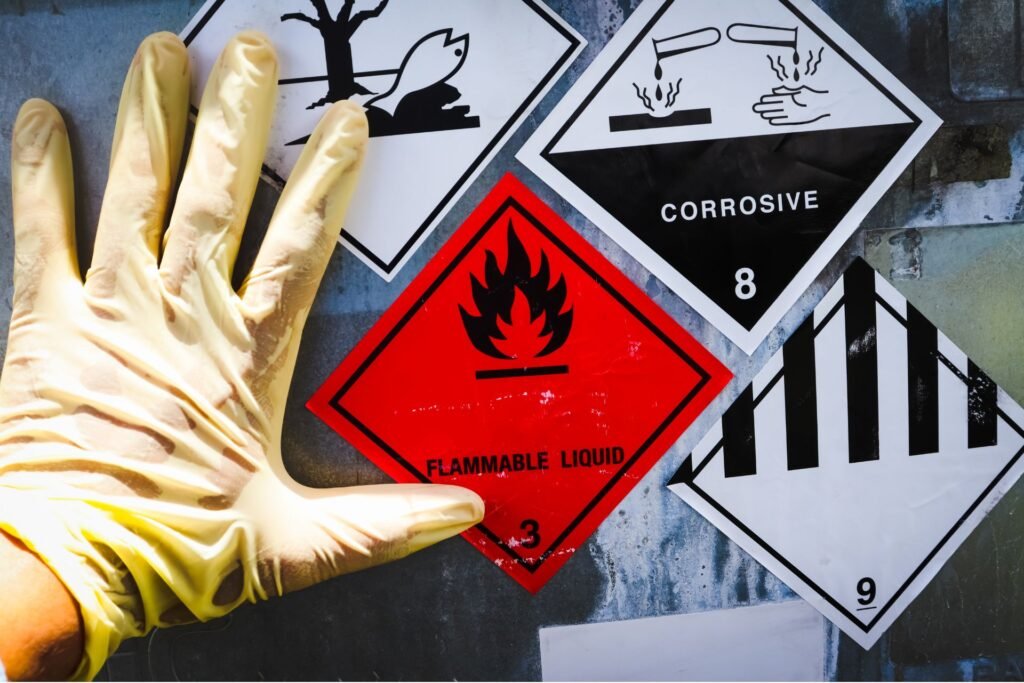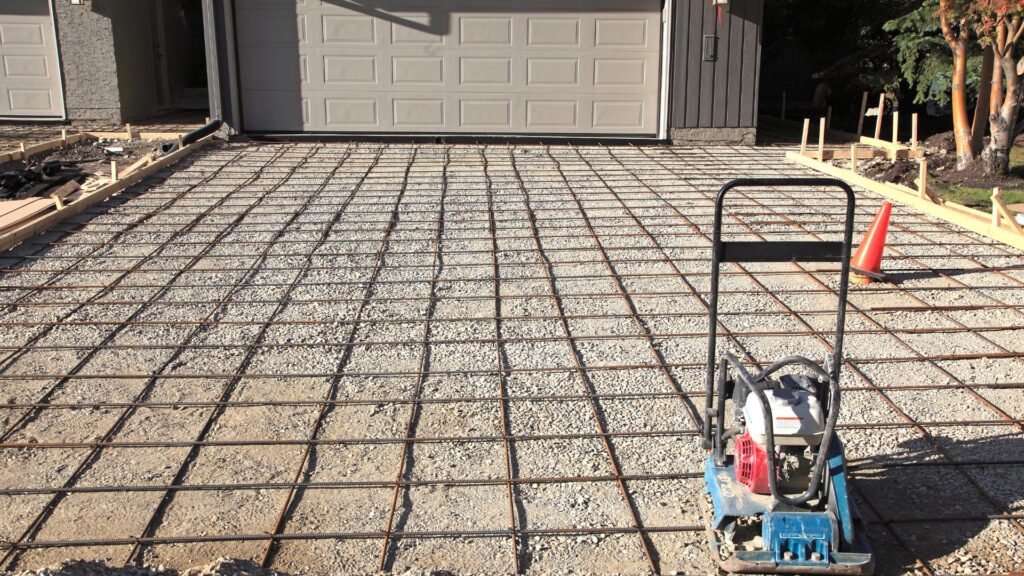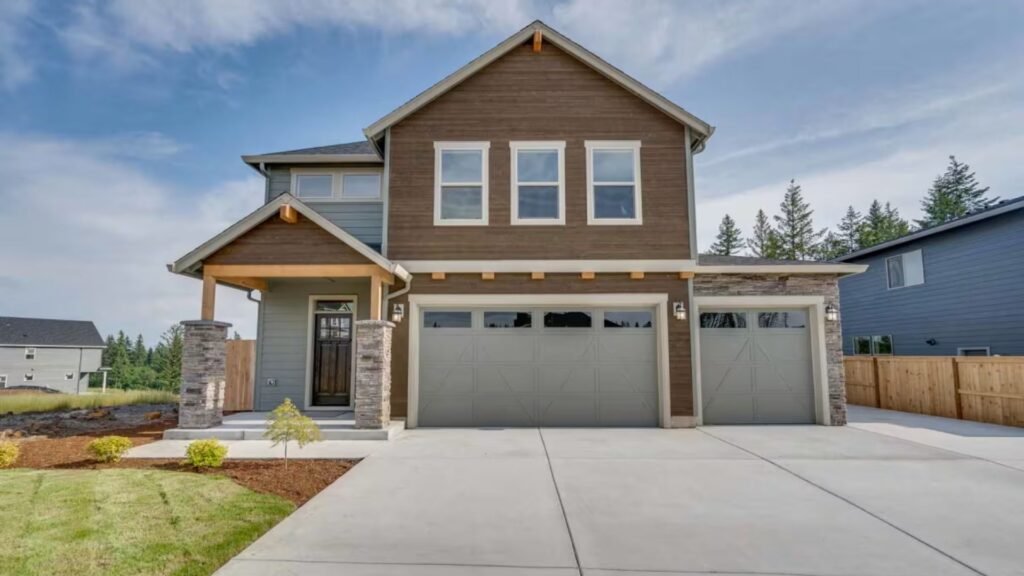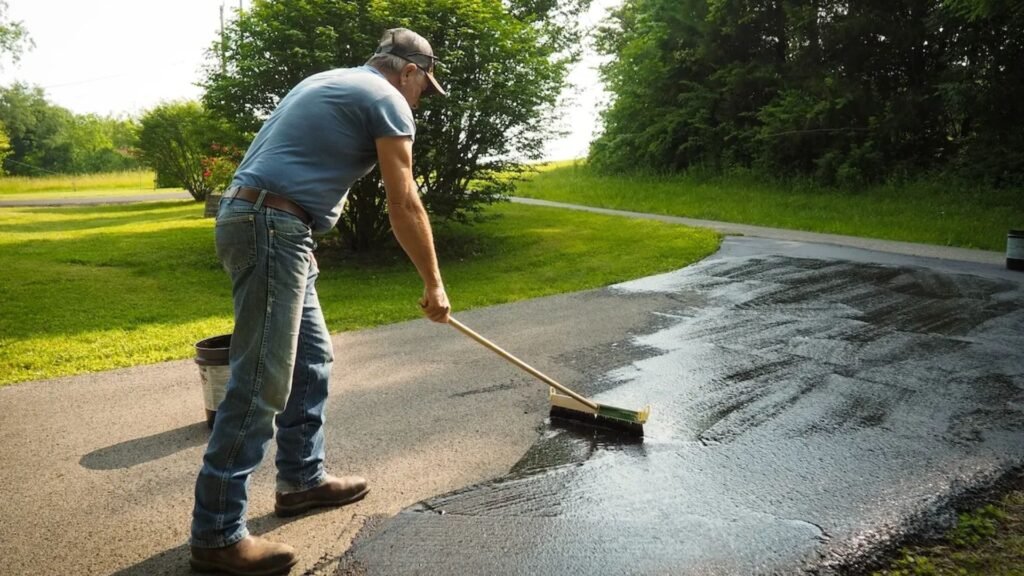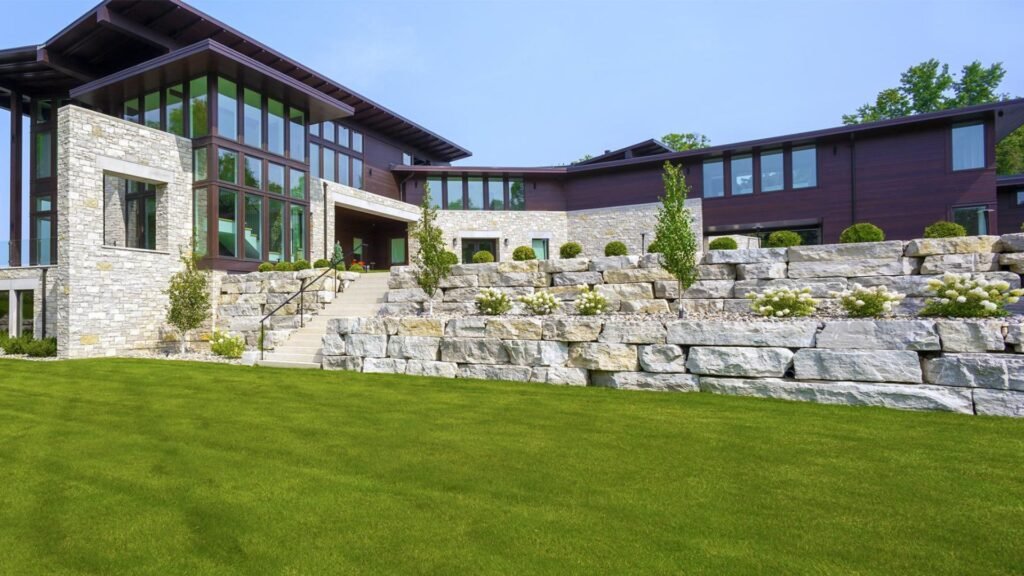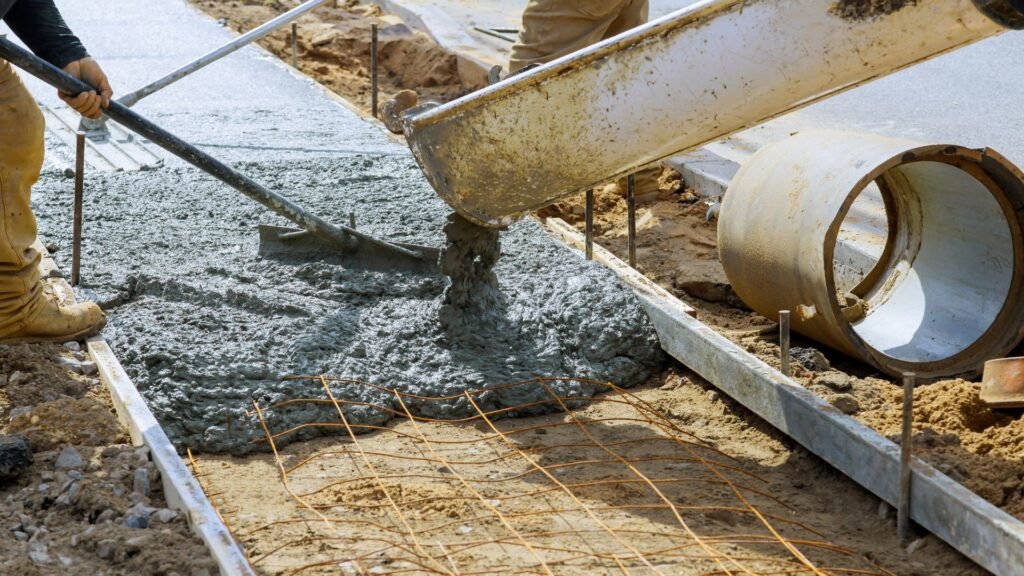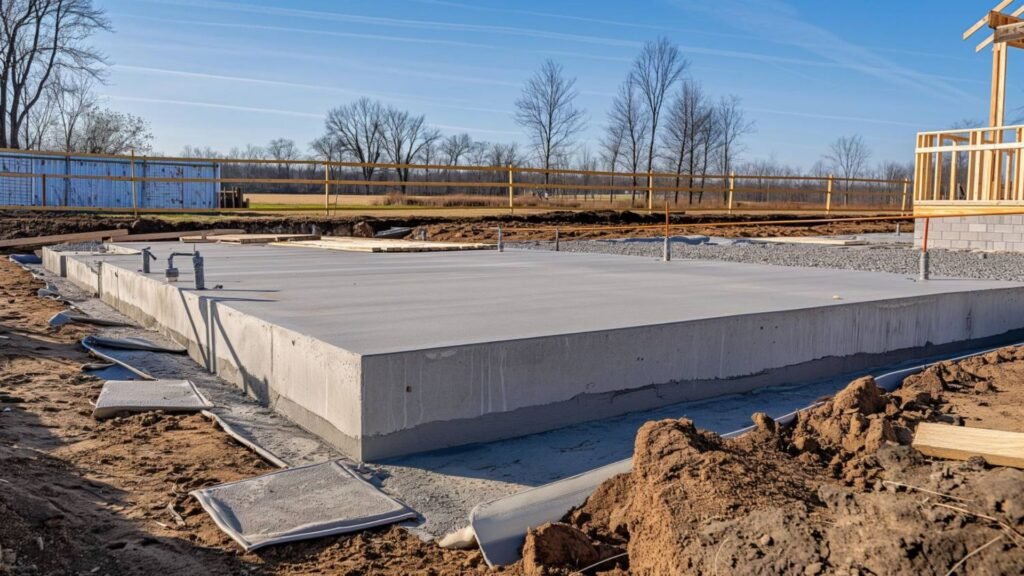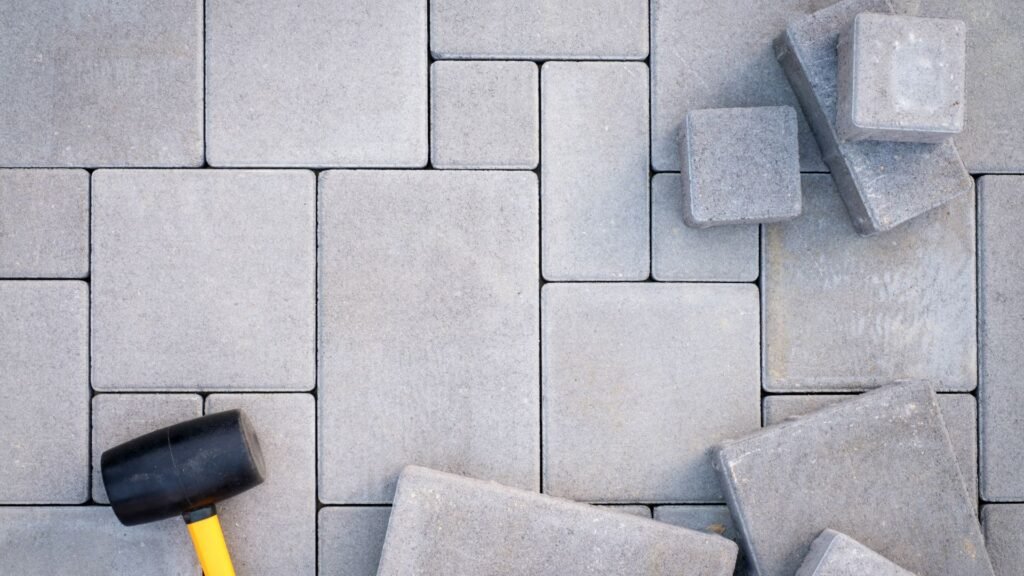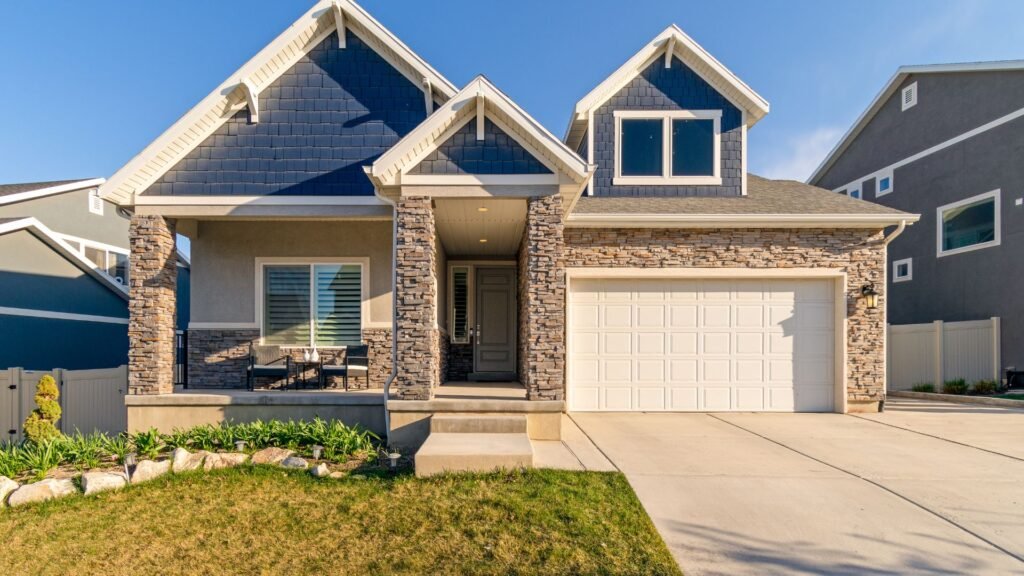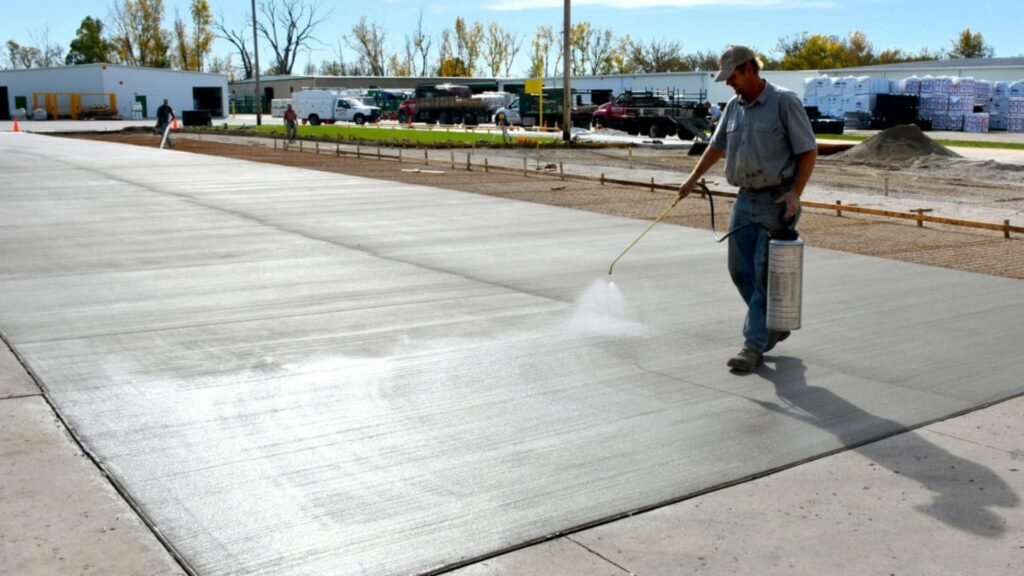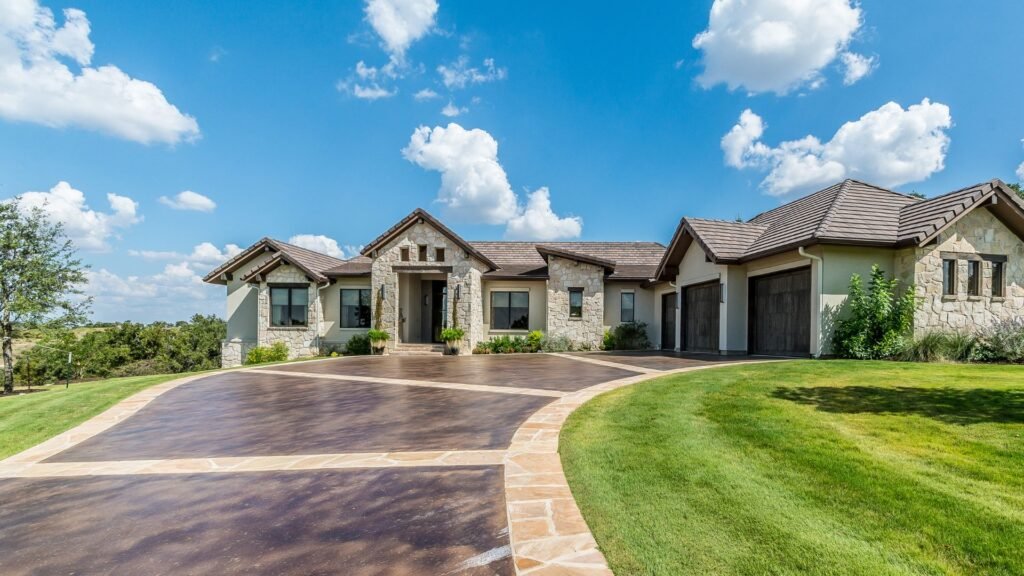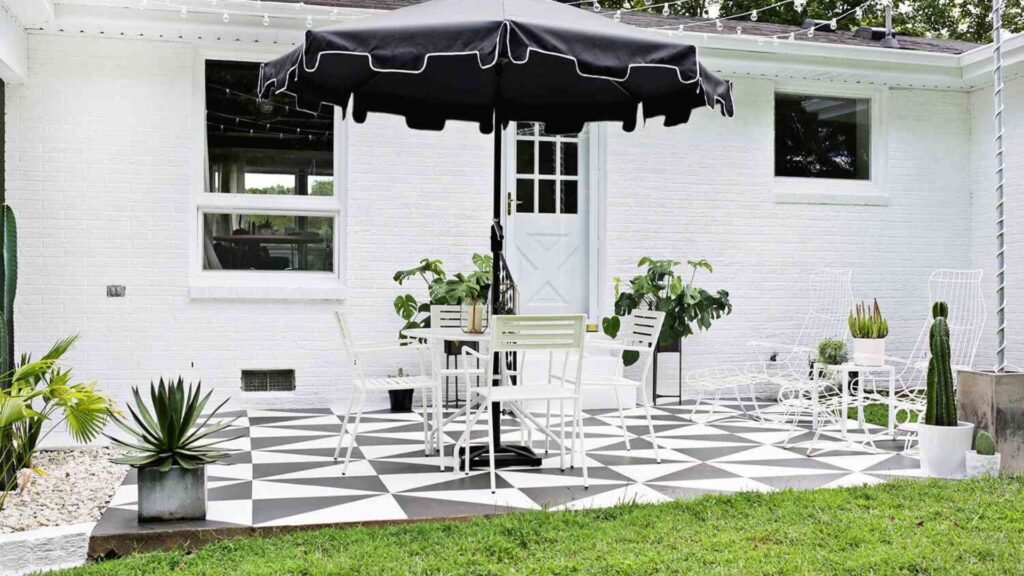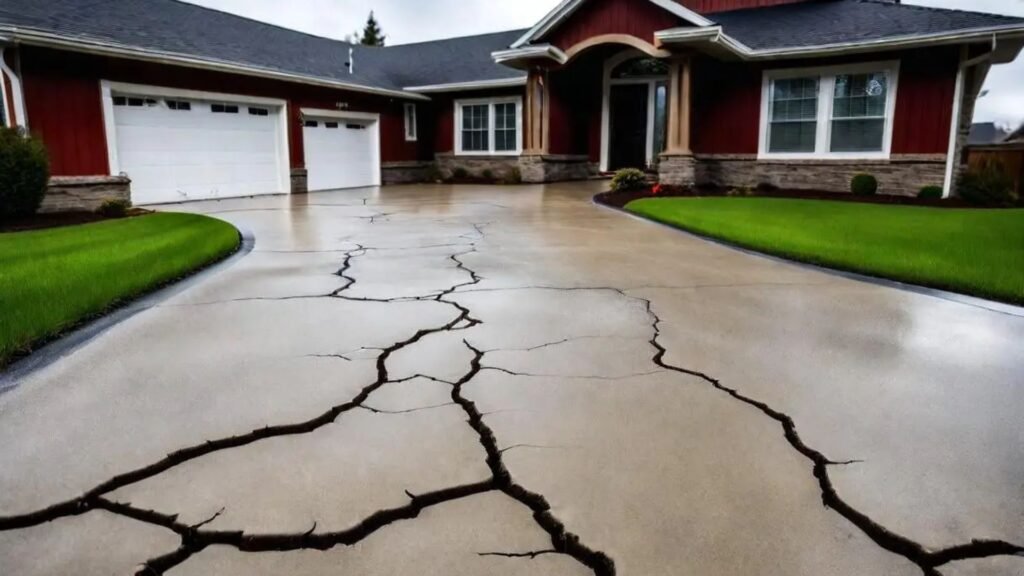Welcome to your ultimate guide on understanding the concrete price per cubic meter in NZ! Whether you’re planning a small backyard DIY project or a larger-scale construction job, knowing the cost of concrete is essential for staying within budget and avoiding any surprises along the way. In this post, we’ll walk you through everything you need to know about the average price of concrete in New Zealand, the factors that can impact that cost, and tips for getting the best value for your money. By the end, you’ll be equipped with the knowledge to make informed decisions and keep your project on track.
On average, the concrete price per cubic meter in New Zealand ranges from $150 to $250, depending on factors such as location, type of concrete mix, delivery charges, and the volume ordered. Costs can vary based on the specific requirements of your project, with larger orders often benefiting from discounted rates.
Table of Contents
What Is The Average Concrete Price Per Cubic Meter In NZ?
When planning any construction or renovation project in New Zealand, understanding the cost of concrete is essential. As of 2023, the average price for concrete in New Zealand typically falls between $150 to $250 per cubic meter. However, these prices can fluctuate based on several factors, including location, transportation, and the specific mix of concrete required for your project.
Regional Price Differences: Auckland vs. Rural Areas
One of the most significant factors that influence the cost of concrete is the region. In urban areas like Auckland, where demand is high and transportation infrastructure is more developed, you can expect to pay towards the higher end of the range, often closer to $230 to $250 per cubic meter. This is primarily due to increased demand and higher transportation costs in metropolitan regions.
In contrast, rural areas tend to have slightly lower costs for concrete, ranging from $150 to $200 per cubic meter. However, it’s important to note that in more remote locations, transportation can actually drive prices up due to the distance concrete must be hauled. This means rural areas aren’t always guaranteed to have cheaper concrete, but there’s generally a noticeable price gap when compared to major cities.
Factors Influencing Concrete Prices
Concrete prices in New Zealand fluctuate for a variety of reasons:
1. Transportation Costs: One of the biggest factors impacting price is the cost of transporting concrete from the supplier to your project site. Concrete has a limited workable time, so proximity to a supplier matters. The farther away you are from the supplier, the more you’ll likely pay in transportation fees, which are usually factored into the overall cost.
2. Type of Concrete Mix: There are different types of concrete mixes used depending on the project’s needs. A simple residential driveway may use a basic mix, while large commercial projects often require reinforced or specialty concrete, which can be more expensive.
3. Supplier Competition: The availability of suppliers in your area also affects pricing. In regions with multiple concrete suppliers, competition can help lower costs. In contrast, areas with fewer suppliers might see higher prices due to a lack of competition.
4. Project Specifics: Every project is unique, and so too are the costs associated with it. For example, a large-scale project requiring multiple pours may allow you to negotiate lower rates with suppliers due to the high volume. On the other hand, smaller, one-off projects might see slightly higher per-cubic-meter costs.
While the average concrete price per cubic meter in New Zealand is a helpful guide, remember that these are just estimates. Prices will always vary depending on the specific details of your project, the location, and the type of concrete required. To get an accurate quote, it’s advisable to reach out to local suppliers and factor in all elements such as delivery, volume, and the mix of concrete needed.

Factors That Influence The Price Of Concrete In NZ
When estimating the cost of concrete in New Zealand, various factors come into play. These variables influence the final price you’ll pay, whether you’re tackling a DIY project or organizing a larger commercial venture. Let’s dive into the key elements that can affect concrete pricing in NZ:
1. Location
One of the most significant factors influencing the price of concrete in New Zealand is the location where it’s needed. For urban areas, the transportation cost is typically lower, as concrete plants are usually nearby. However, if your project is in a rural or remote location, the delivery fees can rise significantly. Transporting concrete to distant areas means higher fuel costs, more time, and logistical challenges, all of which contribute to the overall price.
In short, the farther your project is from the concrete supplier, the more you’ll likely have to pay for delivery.
2. Type of Concrete Mix
The type of concrete mix you need will also impact the price. Different projects require different concrete strengths and compositions, and specialty mixes are often more expensive.
For instance, a standard 20 MPa (megapascals) mix is commonly used for residential driveways and may be more affordable. In contrast, a high-strength mix, like 40 MPa, is necessary for structural purposes and will cost more due to its enhanced durability and specialized composition. Other factors, such as additives like reinforced concrete (which includes steel or synthetic fibers for extra strength), will further increase the cost. Specialty concrete mixes tailored to withstand harsh conditions, like exposure to chemicals or heavy traffic, will also raise prices.
When choosing the right mix, it’s crucial to balance cost with the specific requirements of your project.
3. Quantity Ordered
How much concrete you order is another key factor in determining the price. Ordering in bulk often provides cost savings, as suppliers tend to offer discounts for larger quantities. This is because delivering one large order is more efficient for them than several smaller orders.
On the other hand, if you’re only ordering a small amount of concrete, you may face additional charges, as suppliers have minimum load requirements. These fees can be frustrating, especially for smaller residential projects where only a limited amount of concrete is needed. In short, the larger your order, the better the chances of reducing the cost per cubic meter.
4. Delivery Charges
Delivery charges for concrete can vary based on several factors. The distance from the concrete plant to your site plays a big role, with longer distances resulting in higher transportation costs. Additionally, the complexity of the delivery process can add to the price. For example, delivering concrete to an urban area with heavy traffic may require more time, while rural or hard-to-reach areas might need special equipment, such as boom pumps, to deliver the concrete efficiently.
In some cases, suppliers may charge extra for long-distance deliveries or when special machinery is required to place the concrete in areas that are difficult to access. Be sure to factor in these additional charges when budgeting for your project.
5. Additional Services or Requirements
Depending on your project’s complexity, you might need extra services beyond just concrete delivery. For example, you may require on-site mixing, which can add to the overall cost. If you need assistance with placing the concrete, hiring labor can further increase expenses.
Furthermore, some projects may require additional materials, such as reinforcing steel or additives to improve the concrete’s performance in specific conditions (e.g., waterproofing agents or accelerants for faster curing). These materials come at an extra cost, which can vary based on your specific needs.
Understanding these key factors can help you better estimate the cost of concrete in New Zealand. By considering location, mix type, quantity, delivery charges, and additional services, you can plan your project more effectively and avoid unexpected expenses. Always remember to consult with your local supplier to get a comprehensive quote tailored to your specific project requirements.

Concrete Pricing For Different Projects In NZ
Concrete is an essential material for many construction projects in New Zealand, and its cost can vary depending on the type of project, volume required, and other factors. Whether you’re building a driveway, laying down foundations, or working on a large commercial venture, it’s essential to understand the amount of concrete needed and how much it will cost. Below is a breakdown of typical projects and the associated costs to help you plan better.
Driveways
A common residential project, driveways typically require a substantial amount of concrete. For a standard driveway, which is about 30 square meters in size, you may need around 3 cubic meters of concrete. On average, the cost of concrete per cubic meter in New Zealand ranges between NZD $180 and $220. This means that for a standard driveway, you could be looking at around NZD $540 to $660 for the concrete alone, not including labor and other materials.
However, the actual cost can vary depending on factors such as driveway thickness, the inclusion of reinforcement materials, and the location of your property. If you require a thicker driveway, for example, 150mm instead of 100mm, this would increase the amount of concrete required and thus the overall cost.
Foundations
When it comes to house foundations, the amount of concrete needed can be significantly higher than that for a driveway. The volume of concrete required depends on the size of the house, soil type, and the complexity of the foundation design. For a typical 150 square meter house with standard foundations, you might need around 12-15 cubic meters of concrete.
The cost of concrete for foundations in New Zealand can range from NZD $2,160 to $3,300, assuming the same per-cubic-meter rate of $180 to $220. However, certain factors may increase this, such as the need for specialized foundation work due to poor soil conditions, or if you are building on a sloped site, which could require more concrete and labor.
Patios and Outdoor Areas
For smaller projects like patios and outdoor areas, the cost of concrete per square meter can often be higher. This is due to the potential for delivery minimums, as many suppliers require a minimum order to make delivery worthwhile. For a patio that is around 10 square meters, you would typically need around 1 cubic meter of concrete.
In New Zealand, the per-meter cost for these smaller projects could rise to NZD $250 or more due to additional service fees or the need to meet delivery minimums. While these projects are smaller in scale, it’s important to account for any extra costs that might arise due to limited order sizes.
Commercial or Large-Scale Projects
For commercial or large-scale projects, such as the construction of office buildings or industrial complexes, the volume of concrete required can be substantial. Large projects can require hundreds of cubic meters of concrete, which allows for bulk ordering. When ordering in bulk, the per-cubic-meter cost often decreases, sometimes dropping to as low as NZD $160 per cubic meter or less, depending on the supplier and the size of the order.
For example, a large commercial project requiring 500 cubic meters of concrete could result in a cost of around NZD $80,000, though discounts for bulk orders could lower this figure. Additionally, logistics, transportation, and the need for specialized mixing techniques may also impact the overall cost for large-scale projects.
Calculating the Amount of Concrete Needed
To ensure accurate estimates, it’s essential to calculate the right amount of concrete for your project. Many online concrete calculators are available to help with this, where you can input the project dimensions to get an estimate. It’s also wise to consult with a concrete supplier or contractor to get precise calculations based on your specific needs. Factors such as thickness, reinforcement, and the complexity of the design can all affect the total volume of concrete required.
By understanding these aspects, you can plan better and manage costs effectively across different types of concrete projects in New Zealand.

Ready-Mix Concrete Vs. Site-Mixed Concrete: Which Is Cheaper?
When it comes to choosing the right type of concrete for your project, the debate often centers on ready-mix concrete versus site-mixed concrete. Both options come with their own set of advantages and drawbacks, but the question that frequently arises is: which is the cheaper option? To answer that, let’s break down the definitions, benefits, and costs associated with each type.
What is Ready-Mix Concrete?
Ready-mix concrete is a type of concrete that is pre-mixed at a batching plant and then delivered to the construction site in large trucks equipped with rotating drums. The concrete is precisely engineered with predetermined ratios of cement, water, and aggregates, ensuring consistency in quality. It is particularly popular for larger projects that require a continuous supply of concrete.
What is Site-Mixed Concrete?
Site-mixed concrete, on the other hand, involves mixing raw materials like cement, water, sand, and aggregates directly at the construction site. Typically, the contractor measures the components manually or with portable mixers. This process allows for adjustments in the mix during the project, providing more flexibility in certain cases, especially for smaller or more specialized jobs.
Ready-Mix Concrete vs. Site-Mixed Concrete: Pros and Cons
Each type of concrete has its pros and cons, especially when evaluated through the lens of cost-efficiency, time savings, and quality control.
1. Cost Efficiency
- Ready-Mix Concrete: Generally, ready-mix concrete is priced higher per cubic meter. In New Zealand, prices for ready-mix can range from NZD $200 to $300 per cubic meter, depending on the quality and delivery distance. The higher upfront cost may initially seem prohibitive for smaller projects. However, the speed of delivery and reduced labor costs often make up for this. Ready-mix concrete minimizes wastage since the exact amount needed can be ordered, making it ideal for larger-scale projects where precision is critical.
- Site-Mixed Concrete: This option can seem cheaper at first glance, primarily because you have control over the materials and mixing process. In New Zealand, the cost of site-mixed concrete materials can range from NZD $150 to $250 per cubic meter, depending on the mix design. However, additional labor costs and the potential for material wastage can add up, especially for large-scale projects. Mixing on-site also takes longer, and delays can translate into higher overall project costs.
2. Time Savings
- Ready-Mix Concrete: One of the biggest advantages of ready-mix concrete is the time saved during the construction process. The concrete is ready to pour upon arrival, significantly speeding up the workflow. In projects where time is of the essence, such as commercial developments or large-scale residential builds, ready-mix concrete allows teams to stay on schedule.
- Site-Mixed Concrete: Site-mixed concrete, while flexible, is more time-consuming. The process of mixing, adjusting, and pouring takes longer, which can be a drawback for larger or time-sensitive projects. Additionally, inconsistent mixing on-site can lead to delays if the quality is not up to par, requiring rework.
3. Quality Control
- Ready-Mix Concrete: With ready-mix, the mix ratios are strictly controlled in a quality-assured environment at the batching plant. This results in a high level of consistency in terms of strength and durability, reducing the risk of structural defects. For projects requiring high-strength concrete or specialized mixes, ready-mix offers a reliable solution.
- Site-Mixed Concrete: Quality control is less predictable with site-mixed concrete, as it largely depends on the skill of the workers and the accuracy of their measurements. This can lead to variability in the concrete’s strength and finish. For smaller or less complex projects, this might be acceptable, but for larger or more structurally demanding projects, it introduces a level of risk.
Which Option is Cheaper?
While ready-mix concrete typically costs more per cubic meter, the time saved and the consistent quality can often offset these costs for larger projects. For example, in a high-rise construction project, where delays can be extremely costly, the efficiency of ready-mix concrete makes it the better financial choice in the long run.
Site-mixed concrete, on the other hand, might be more cost-effective for smaller projects with less stringent requirements. Projects like small patios, footpaths, or driveways, where the quality consistency and time aren’t as critical, may benefit from the lower upfront costs of site-mixed concrete.
Pricing Comparisons in New Zealand
In New Zealand, ready-mix concrete tends to be priced between NZD $200 and $300 per cubic meter, depending on factors like distance from the batching plant, quality of the mix, and quantity ordered. Conversely, site-mixed concrete generally comes in at a lower base cost of NZD $150 to $250 per cubic meter, though this can quickly increase once labor, potential delays, and material wastage are factored in.
When to Choose Ready-Mix Concrete vs. Site-Mixed Concrete
- For larger, complex projects, such as commercial developments, multi-story buildings, or infrastructure projects, ready-mix concrete is the more cost-efficient option when considering overall time and labor savings.
- For smaller or more flexible projects, such as home renovations, driveways, or garden paths, site-mixed concrete may be a better fit due to its lower upfront cost and on-site flexibility.
The cost-effectiveness of ready-mix versus site-mixed concrete largely depends on the scale, complexity, and time sensitivity of your project. Larger projects often benefit from the consistency and speed of ready-mix concrete, while smaller, simpler jobs may find site-mixed concrete to be more budget-friendly. Understanding your project’s unique needs is the key to making the most cost-effective decision.

How To Get The Best Value When Buying Concrete In NZ
When purchasing concrete in New Zealand, it’s essential to maximize value without compromising quality. Concrete is a fundamental material for construction, so whether you’re a homeowner planning a driveway or a contractor managing a large-scale project, understanding how to get the best price is crucial. Here’s a detailed guide to help you save money while ensuring you receive top-quality concrete.
1. Shop Around for Quotes
One of the most effective ways to ensure you’re getting the best deal on concrete is by comparing prices from multiple suppliers. Concrete pricing can fluctuate depending on the region, supplier, and even the time of year. By gathering quotes from several sources, you can identify competitive prices and avoid overpaying.
Example Tip: “Prices can vary significantly between local suppliers, so don’t settle for the first quote you receive. Take the time to request quotes from at least three different suppliers and evaluate their offers, including any added services such as delivery or mixing on site.”
2. Consider Bulk Orders
Ordering larger quantities of concrete can often result in cost savings. Many suppliers offer discounts when purchasing concrete in bulk, which can reduce the cost per cubic meter. This is especially useful for larger projects where you need a substantial amount of material.
If you’re working on a large project, it might be worth calculating if a bulk order could save you money in the long run. Even if the upfront cost seems higher, buying in bulk often reduces the overall expense when compared to multiple smaller orders.
3. Minimize Waste
Wastage is a common problem when dealing with concrete, and it can significantly increase your costs. Ordering too much concrete can lead to waste, while ordering too little can cause project delays and incur additional costs for second deliveries.
Example Tip: “Over-ordering can lead to wasted concrete, while under-ordering can cause delays and extra charges for a second delivery. It’s important to calculate your concrete needs accurately, taking into account the dimensions of the area and the thickness required for your project. Consider using online calculators or consulting with your supplier to get a precise estimate.”
4. Consider Timing
The timing of your concrete order can have a big impact on the price you pay. During off-peak seasons, such as winter months or periods of lower construction activity, suppliers may offer reduced rates to stimulate demand. If your project allows for flexibility, scheduling your concrete delivery during these times can result in significant savings.
By planning ahead and keeping an eye on industry trends, you can take advantage of lower prices when demand is lower.
5. Negotiate Delivery Fees
Delivery fees can sometimes add a substantial amount to the overall cost of your concrete order, especially if your project is located far from the supplier. However, these fees are often negotiable, particularly for larger orders. In some cases, suppliers may offer free delivery for bulk purchases or discounts on delivery fees.
When you receive quotes, don’t hesitate to ask about delivery charges and inquire if there are any promotions or opportunities to waive or reduce these costs. By negotiating, you can potentially save a significant amount on delivery.
By following these strategies, you can ensure you’re getting the best value for your concrete purchase in New Zealand. Always remember that price isn’t the only factor to consider—quality, delivery reliability, and customer service are equally important to ensure your project goes smoothly. By being strategic, planning ahead, and negotiating where possible, you can minimize costs and keep your project on budget without sacrificing quality.

FAQs: About Concrete Price Per Cubic Meter NZ
What is the current price of concrete per cubic meter in New Zealand?
The price of concrete in New Zealand typically ranges between $150 to $250 per cubic meter. This cost can fluctuate based on factors such as the location of the project, the type of concrete mix required, and additional delivery fees.
Does the type of concrete mix affect the price per cubic meter?
Yes, the type of concrete mix significantly affects the price. Standard mixes, such as 20 MPa concrete, are generally cheaper, while high-strength or specialty mixes, like 40 MPa or those with additives, will cost more per cubic meter.
What additional costs should I consider when ordering concrete?
In addition to the base price per cubic meter, you should consider delivery fees, the cost of additional services like concrete pumping, and any potential extra charges for small orders. You may also need to budget for labor costs if you’re hiring professionals to handle the concrete placement
Can I save money by ordering larger quantities of concrete?
Yes, ordering larger quantities of concrete can reduce the cost per cubic meter. Many suppliers offer bulk discounts for larger orders, while smaller orders might come with higher delivery charges or additional fees.
What is the difference between ready-mix and site-mixed concrete?
Ready-mix concrete is pre-mixed at a batching plant and delivered to your site in a truck, offering convenience and consistent quality. Site-mixed concrete, on the other hand, is mixed on-site using raw materials. While ready-mix is generally more expensive, it saves time and ensures higher consistency, making it the preferred option for most large projects.
How can I calculate the amount of concrete I need for my project?
To calculate the amount of concrete required, you’ll need to know the dimensions of the area you are concreting. Multiply the length, width, and depth (in meters) to get the cubic meters required. Many online concrete calculators can help you with this, or you can consult with your supplier for more accurate measurements.
Do delivery fees for concrete vary across New Zealand?
Yes, delivery fees vary based on the location of your project. Urban areas generally have lower delivery costs due to proximity to suppliers, while rural or remote locations may incur higher transportation fees. Delivery distance, the difficulty of access, and the need for specialized equipment can also impact the cost.
Is there a minimum order requirement for concrete in New Zealand?
Most suppliers have a minimum order quantity for concrete, usually around 0.4 to 0.6 cubic meters. If your project requires less concrete, you may face additional charges or a higher price per cubic meter to cover the cost of transportation and mixing.
Can I mix my own concrete to save on costs?
Mixing your own concrete can save money on small projects, but it comes with its own set of challenges, such as ensuring the correct mix ratio and quality. For larger or more critical projects, ready-mix concrete is recommended for its reliability and consistency.
How can I ensure I’m getting the best value for my concrete order?
To get the best value, start by requesting multiple quotes from local suppliers, compare prices, and look for bulk discounts. Ensure you accurately calculate your concrete needs to avoid over-ordering or under-ordering. Additionally, consider scheduling your concrete delivery during off-peak times, when suppliers may offer better rates or free delivery promotions.
Conclusion
In conclusion, understanding the factors that affect concrete pricing in New Zealand, such as the type of concrete, project size, location, and additional services, is key to managing your budget effectively. By considering these variables and following practical tips like comparing quotes and consulting professionals, you can get the best value for your investment. Whether you’re planning a small residential driveway or a large commercial project, taking the time to research and communicate with local suppliers or contractors will help you secure accurate estimates and ensure your project runs smoothly. Don’t hesitate to contact a local supplier today for a precise quote and make your project a success.
About the Author:
Mike Veail is a recognized digital marketing expert with over 6 years of experience in helping tradespeople and small businesses thrive online. A former quantity surveyor, Mike combines deep industry knowledge with hands-on expertise in SEO and Google Ads. His marketing strategies are tailored to the specific needs of the trades sector, helping businesses increase visibility and generate more leads through proven, ethical methods.
Mike has successfully partnered with numerous companies, establishing a track record of delivering measurable results. His work has been featured across various platforms that showcase his expertise in lead generation and online marketing for the trades sector.
Learn more about Mike's experience and services at https://theleadguy.online or follow him on social media:



